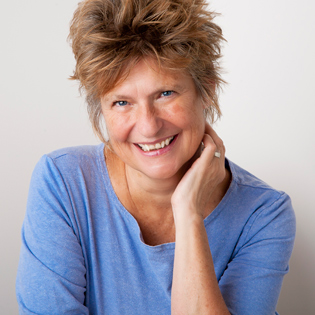by Monica Voss
It seems these days in Toronto, and possibly elsewhere (although I have not heard it expressed when I teach in Canada, in the US or in the UK) that the study of Patanjali is being elevated and Hatha Yoga, unless accompanied by some recognition of the Yoga Sutras, denigrated. This hierarchical attitude was very much in evidence last year during the roundtable discussions at Yoga Festival Toronto in August, 2008, and again in May, 2009, during the “Yoga and Death” off-season roundtable.
The messages seem to be that:
- Hatha Yoga is physical and therefore not spiritual (I’m not sure how/why that follows, since the body is our reality, mind, body, breath, and spirit are interconnected and even indivisable, and all practices of Yoga supposedly promote integration, rather than division and separation),
- Hatha Yoga is not “enough” to promote growth and development in life and prepare for death (as if we could possibly know, except intuitively, what would prepare us adequately for giving birth or for dying), and finally,
- Hatha Yoga without a strong background in the study of Patanjali is not traditional (while we know that there were all sorts of yoga traditions before, during and after Patanjali or his school codified their position).
Many seem to uphold Patanjali’s text as the intellectual authority. I do not. Where does that leave me in the yoga community’s eyes? One important question for all of us to ask is, what is the role of tradition and what is the role of personal experience? Overwhelmingly, the panel in August leaned toward the outside authority of the Sutra (a “textbook for life”, someone said) and away from the personal, the instinctive, away from exploration, autonomy, self-sufficiency, and discovery through the body. Are we denying the body? If so, why? Are we afraid? Or is it simply that we lack confidence in the body’s ability to partner the intellect?
Esther Myers Yoga Studio seems to have a reputation for teaching the injured and unfit. What we do is find ways for everyone who wishes to participate to participate as fully as possible regardless of physical condition, size, shape, and level of experience. One of our students was admonished recently while attending an Astanga Yoga class in Toronto that postures should never be adapted because the pose is always more important than the body. How could that possibly be true? If we are sending that message, are we aware we may be causing harm by doing so? The study of yoga Sutras is challenging and exciting to many people. But does our knowledge of the texts positively affect our behaviour and values as teachers, or is it separate from them?
An article in a recent YFT newsletter suggested that Hatha Yoga has become a practice for and about “bendy bodies”. The implication was that the physical postures and movements are for superficial people and deliver superficial results. My sensibility and experience over 30 years is exactly the opposite. The writer went on to say that Madame Blavatsky didn’t recommend the physical exercises (what she witnessed was probably pretty strange). But why would we defer to Madame Blavatsky, or anyone else on this matter? Or any matter? Hatha Yoga as I know it is intelligent, thoughtful, creative and deeply individual, and therefore anti-authoritarian. If the goal of Yoga is liberation, why would we take anyone else’s say-so? We can be free.
Analyzing guruism would be an important part of a “tradition” conversation, should it take place. There seems to be confusion in our community regarding the Hatha Yoga tradition. Hatha Yoga as it is practised now is only 100 years old and except for sitting crossed-legged on the ground, which is ancient, was mostly designed by one person! How did that person’s ideas become so powerful? And if he came up with an ingenious system for body/mind revelation, who is to say that anyone can’t? I might be tempted to describe my approach to Yoga Zen-like: we don’t need an intermediary, we can realize our lives fully by ourselves.
The memorable moments for me during “Yoga and Death” were not the expression of intellectual constructs, the should’s, the shouldn’t’s, the must’s and have to’s. When Gitta spoke about her use of prayer during an illness, and when the young man in the audience described how he and his friends attempted to deal with the recent death of a fellow student, the room stilled. Our hearts were touched. We felt something real and true. As human beings, we are seeking moments of body/mind/emotion/breath integration, moments of deep connection with each other, aren’t we? Isn’t that the most important thing, that we’re together in our struggle and our search? What is spirituality, if not that?

